At Rainy Filter, we understand the growing importance of sustainable water management in India. With water scarcity becoming a critical issue, states like Odisha, Gujarat, and Telangana have emerged as leaders in implementing effective Rainwater Harvesting in India.
By capturing and storing rainwater, these regions not only supplement groundwater but also ensure agricultural productivity and community water security. Here, we will explore their methods, benefits, and solutions for households and farms, while also highlighting the role of rainy filter systems in modern water conservation.
Why Does Rainwater Harvesting Matters Today?
India faces significant challenges related to water scarcity. Many regions depend heavily on monsoon rainfall, yet groundwater levels are declining rapidly. Rainwater Harvesting provides a sustainable solution by collecting, filtering, and storing rainwater for domestic, agricultural, and industrial use.
The states of Odisha, Gujarat, and Telangana have implemented innovative solutions like recharge well rainwater harvesting to replenish depleted aquifers, ensuring long-term water availability. For homeowners, using a rainwater filter for home can enhance water quality, making collected rainwater safe for daily use.
Odisha: A Pioneer in Groundwater Replenishment
Odisha has successfully leveraged groundwater harvesting to tackle its water shortages. Communities in rural and urban areas have adopted rooftop rainwater collection, coupled with storage tanks and rainwater harvesting filters, to maximize water capture during monsoon seasons.
Key initiatives in Odisha include:
-
Community Recharge Wells – These wells channel rainwater into underground aquifers, replenishing groundwater levels efficiently.
-
Public Awareness Programs – Citizens are encouraged to use simple techniques like rooftop collection and storage to maintain water availability.
-
Integration with Agriculture – Farmers use collected rainwater to irrigate fields, increasing crop yield and reducing dependency on erratic rainfall.
By combining traditional knowledge with modern rainwater harvesting systems, Odisha has set a benchmark for water management in India.
Gujarat: Scaling Up Rainwater Solutions
Gujarat’s success lies in its large-scale implementation of rainwater harvesting methods for agriculture in India. With a focus on drought-prone areas, the state has developed both community and farm-level solutions.
Key strategies include:
-
Farm Ponds and Tanks – Farmers store rainwater for irrigation, reducing reliance on groundwater.
-
Village-Level Water Projects – Local authorities install rainwater purifies and tanks to supply water for multiple households.
-
Government Incentives – Subsidies for installing rainwater harvesting systems motivate more citizens to adopt sustainable practices.
Additionally, Gujarat integrates modern technology like sensors and filtration to monitor water quality, ensuring collected rainwater is safe for both household and agricultural use. For homes, investing in a rainwater filter system ensures clean and potable water, making this practice more practical and beneficial.
Telangana: Urban and Rural Water Conservation
Telangana has emerged as a model state by combining rainwater collecting strategies in urban and rural areas. Cities like Hyderabad mandate rooftop rainwater systems in new buildings, while villages adopt recharge well rainwater harvesting to sustain agriculture.
Highlights of Telangana’s approach include:
-
Urban Rooftop Collection – Apartments and commercial buildings channel rainwater into storage tanks, often integrated with a rainwater purifier for safe domestic use.
-
Rural Recharge Initiatives – Farmers construct check dams and recharge pits, ensuring groundwater is replenished during the monsoon.
-
Community Training Programs – Citizens learn the benefits of water conservation and the proper maintenance of rainwater harvesting accessories for long-term efficiency.
Telangana’s holistic approach proves that combining urban planning with rural initiatives can create a sustainable water management system.
Modern Rainwater Solutions for Homes and Farms
Whether for a home or farm, implementing a rainwater purifier ensures that collected water is safe for use. Modern rainwater filter systems remove debris, contaminants, and sediments, making the water usable for drinking, cooking, or irrigation. Key solutions include:
-
Home Water Filtration System – Ensures clean water from rooftop or storage tank collection.
-
Recharge Wells – Direct excess rainwater into underground aquifers, helping replenish groundwater.
-
Agricultural Integration – Farmers can use filtered rainwater to irrigate crops without risk of contamination.
Investing in a reliable rainy filter not only improves water quality but also supports long-term sustainability.
Step-by-Step Implementation Tips
To start rainwater collecting at home or farm:
-
Assess Your Roof Area – Determine potential rainwater collection capacity.
-
Install Storage Tanks – Choose tanks with proper capacity to store rainwater effectively.
-
Add a Rainwater Filter for Home – Ensures collected water is clean and safe for use.
-
Construct Recharge Wells or Pits – Direct excess water to replenish groundwater.
-
Regular Maintenance – Clean tanks, filters, and pipes to ensure efficiency.
These steps make it easier for anyone to participate in rainwater harvesting in India effectively.
Advantages of Rainwater Harvesting
Implementing a rainwater harvesting system offers multiple benefits:
-
Reduces Water Scarcity – Ensures a continuous supply of water during dry periods.
-
Enhances Groundwater Levels – Recharge wells and pits replenish underground aquifers.
-
Supports Agriculture – Farmers can irrigate crops reliably with filtered rainwater.
-
Eco-Friendly – Reduces dependence on bottled water and municipal supply.
-
Cost-Effective – Lowers water bills and reduces strain on municipal resources.
Using a rainwater filter system at home ensures the water collected is safe for all household needs, promoting sustainable water use.
Making It Work: Tools and Accessories
Successful rainwater collection relies on proper equipment. Rainwater Harvesting Accessories, such as first-flush systems, filters, and storage tanks, make a significant difference. Pairing these with a high-quality rainwater purifier ensures safety and longevity. Modern solutions also include:
-
Debris screens for rooftops
-
Storage tanks with sediment filters
-
Automated water level monitoring
These tools make rainy filter technology efficient and reliable for daily use.
Driving a Nationwide Movement
Odisha, Gujarat, and Telangana have shown that water conservation is achievable with dedication, innovation, and the right technology. By adopting rainwater collecting strategies, other states can also combat water scarcity. Homeowners and farmers can benefit from rainwater purifies and structured rainwater harvesting systems, ensuring clean water for generations.
Key Takeaways:
-
Rainwater harvesting replenishes groundwater and ensures a sustainable water supply.
-
Odisha, Gujarat, and Telangana are leaders in implementing effective collection and recharge methods.
-
Rainwater purifiers enhance water safety for domestic and agricultural use.
-
Proper maintenance and the right accessories ensure long-term efficiency.
-
Individual participation is critical for nationwide water sustainability.
FAQ’s:
1. What is rainwater collecting in India?
It is the collection and storage of rainwater for domestic, agricultural, or industrial use, helping supplement groundwater.
2. How does a rainwater filter for home work?
It removes debris, sediments, and contaminants from collected rainwater, making it safe for use.
3. What are recharge wells in rainwater collecting?
Recharge wells channel excess rainwater into underground aquifers to improve groundwater levels.
4. Are rainwater collecting methods for agriculture effective?
Yes, they help irrigate crops during dry periods, reduce dependency on groundwater, and improve yield.
5. Can I use a rainy filter system in urban apartments?
Absolutely. Rooftop collection combined with a proper rainwater filter system makes it safe and effective for urban homes.
Water scarcity is a growing concern, but states like Odisha, Gujarat, and Telangana prove that rainwater harvesting in India can be scaled efficiently. Implementing a rainwater purifier, whether at home or on farms, ensures safe and sustainable water use. With the right technology and dedication, every household can benefit from cleaner, more reliable water supplies. Explore effective solutions with Rainy Filter today and make a difference in water conservation.

